Romeo and Juliet
In his most ambitious season Artistic Director Jim Vilé worked hard with the eleven productions he mounted in 1989 to consolidate a house-style that projected a youthful image, energy and variety. One of these was Romeo and Juliet directed by Vilé. It met with widespread critical acclaim and was one of many productions during Vilé’s tenure which attracted large school audiences.
Critic Sue Gough wrote: “I have never seen a better Romeo and Juliet than this one. It succeeds on many levels, being daring, well-acted, dangerously athletic and relevant”. John Harris in The Daily Sun (4 April 1989) enthused: “Here is a work of such fire and energy that merely watching is to experience a pulse-racing fervor, an exhilaration rare in home-grown theatre.” Sue Gough’s full review follows.
Writer: Christine Comans
Star-crossed lovers in the 20th century
Review by Sue Gough
I have never seen a better Romeo and Juliet than this one. It succeeds on many levels, being daring, well-acted, dangerously athletic and relevant. If director Jim Vilé cannot sustain the energy of the production to the very end, I am more inclined to blame Shakespeare's excess of melodrama than Vilé s direction. However, so much innovation has been packed into the first act that the pace of the second half appears slow by comparison.
La Boite is the perfect venue for this play. Its interior space is just like an Italian piazza. The central stage contains the family territories, their complex peripheries, strutting provocation and territorial markings that form the inward antagonisms of Italian society. Vilé ocates that tragic evolutionary flaw that still links Shakespeare's time and ours: there is no period more dangerous than late adolescence. Gunned by the hormones to extremes of emotion and physicality, the young are cruelly over-endowed with the means of self-destruction. Today it is hot wheels and drugs, in those days it was cold steel and poison.
While the older generation dance the Maxina in 1950’s finery, the young, decked out in op-shop Adam Ant gear, rap-dance, moonwalk, gate-crash parties and are aggressive to the public and one another. There is no common ground.
Laurence Hodge and Anna Pike, as Capulet and his lady, capture perfectly the rigidity of middleclass middle-age. Friar Lawrence (Paul Sherman) and Juliet's nurse (Bev Langford) are the only adult free spirits. Langford nearly steals the show with her garrulous, indulgent yet controlling old biddy.
This Romeo (Darryl Hukins) and Juliet (Veronica Neave) are a believable pair of teenage lovers. He is a curious mixture of wildness and gentleness, spurred by over-intensity. She glows with a sunny, naive euphoria. Neither of them have any truck with reality or with compromise.
The balcony scene is transformed beyond poetry. It could be one of those intense phone calls that go on for hours - she giggles, he boasts. Later on, their thin veneer of sophistication collapses into confusion and uncertainty. Both of them regress into childlike tantrums when circumstances get the better of them.
Their contemporaries share their vulnerability. David Brown is an outstanding Mercutio, fired by an amphetamine jitter which hones his wit and his reactions beyond discretion. Charles Barry as Benvolio is the classic gang groupie. Peter Lamb as Tybalt is on the prowl for trouble like a football fan at a final. The sword fights are so dangerously realistic that they are heart-stopping.
This is riveting, living Shakespeare. Do not miss it.
The Australian 13 April 1949
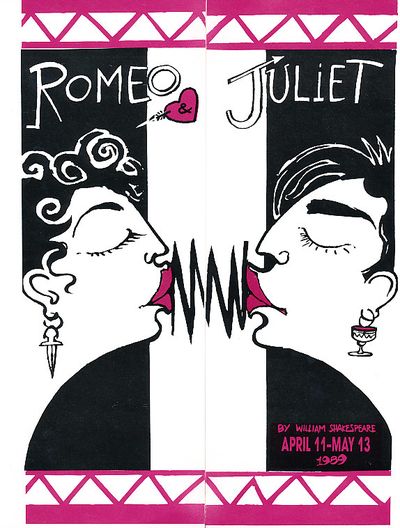
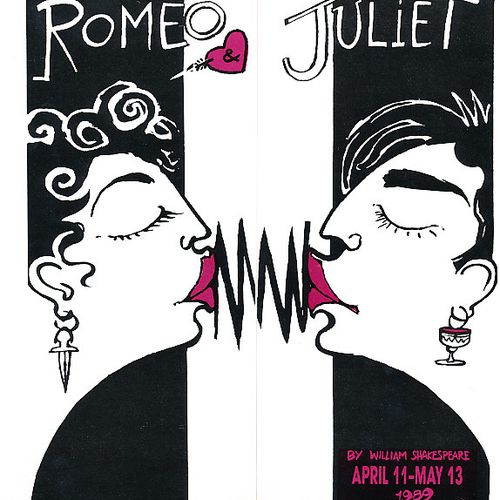
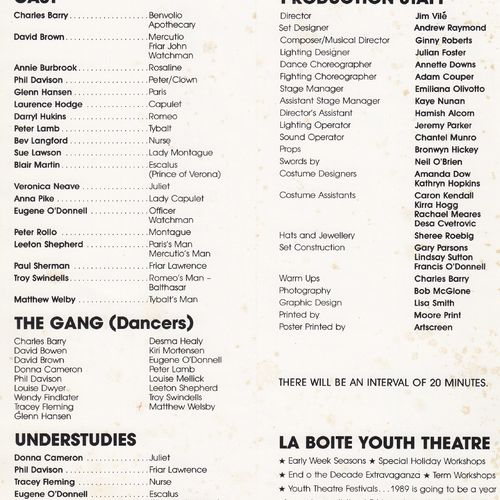
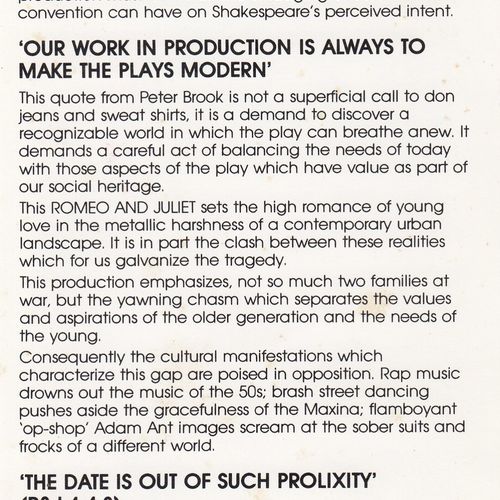
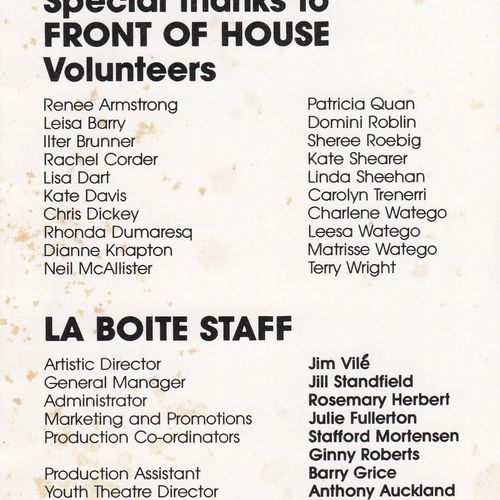
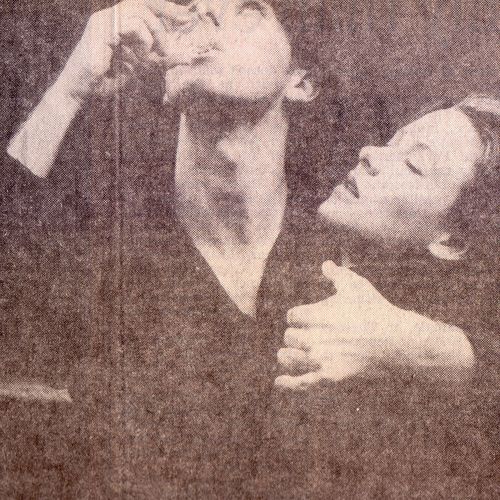
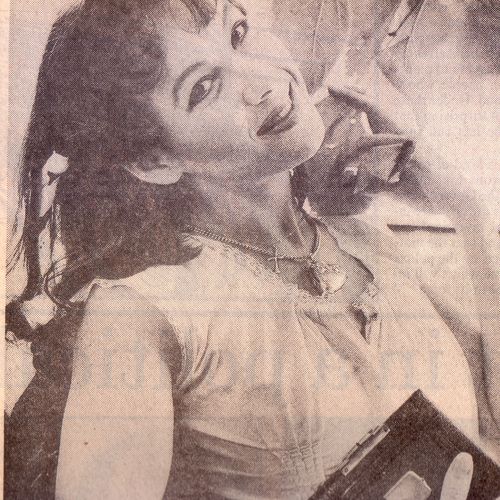
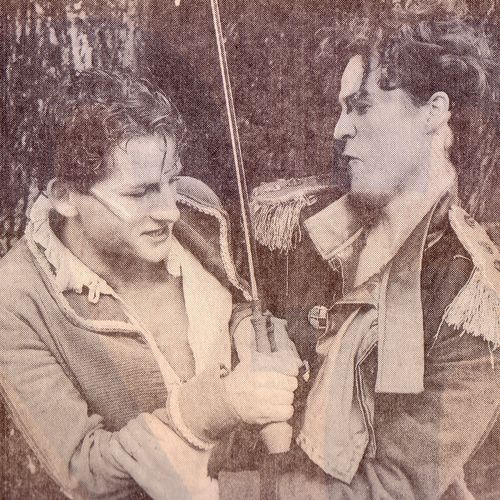
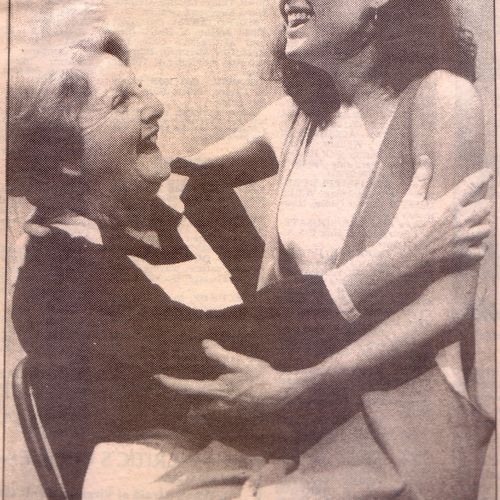
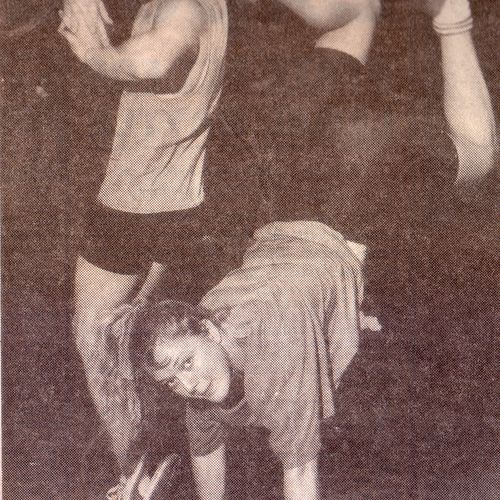
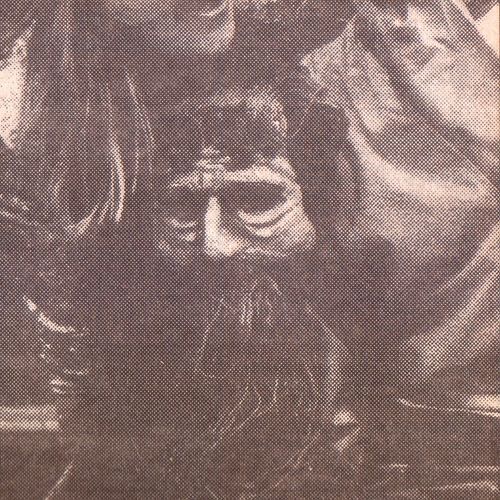
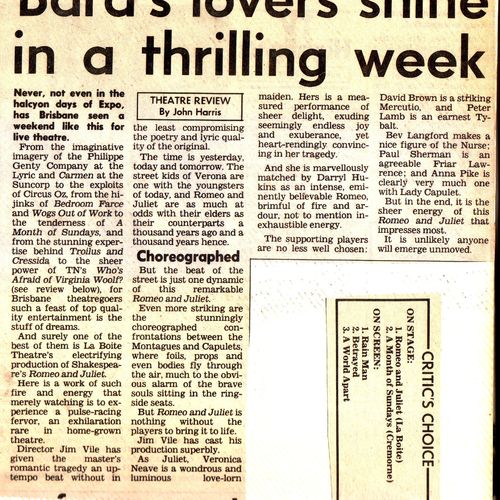
Tell us your story